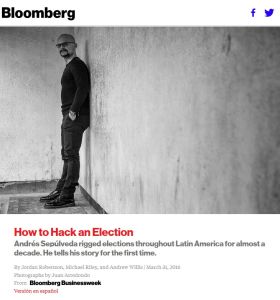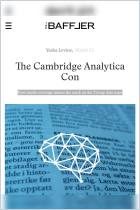Join getAbstract to access the summary!

Join getAbstract to access the summary!
Jordan Robertson, Michael Riley and Andrew Willis
How to Hack an Election
Bloomberg, 2016
What's inside?
If you think political campaign hacking isn’t happening in your country, think again.
Recommendation
Rigging an election in the digital age requires more sophisticated tactics than just the simple buying of votes. There are emails to steal, campaign security systems to hack and insidious malware to create. Bloomberg Businessweek journalists Jordan Robertson, Michael Riley and Andrew Willis explain how elections can be bought for a price, with or without a candidate’s knowledge. They tell the story of Andrés Sepúlveda, currently serving a prison sentence in Colombia for a host of crimes related to fixing an election via the Internet. getAbstract recommends this troubling, but vital, article to anyone interested in how leaders come to power in the 21st century.
Summary
About the Authors
Jordan Robertson and Michael Riley are cybersecurity reporters for Bloomberg Businessweek. Andrew Willis covers commodities and Colombia for Bloomberg Businessweek.
























Comment on this summary